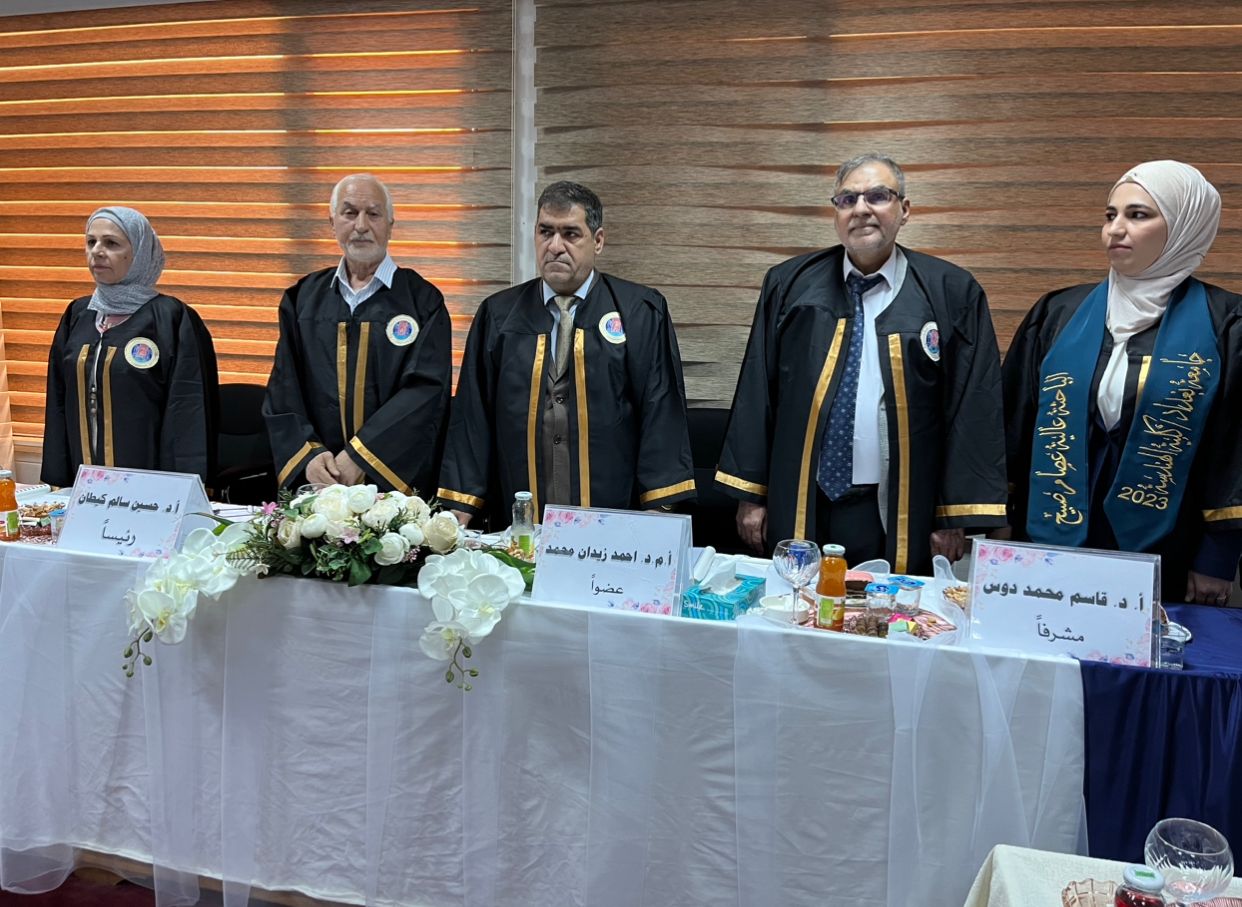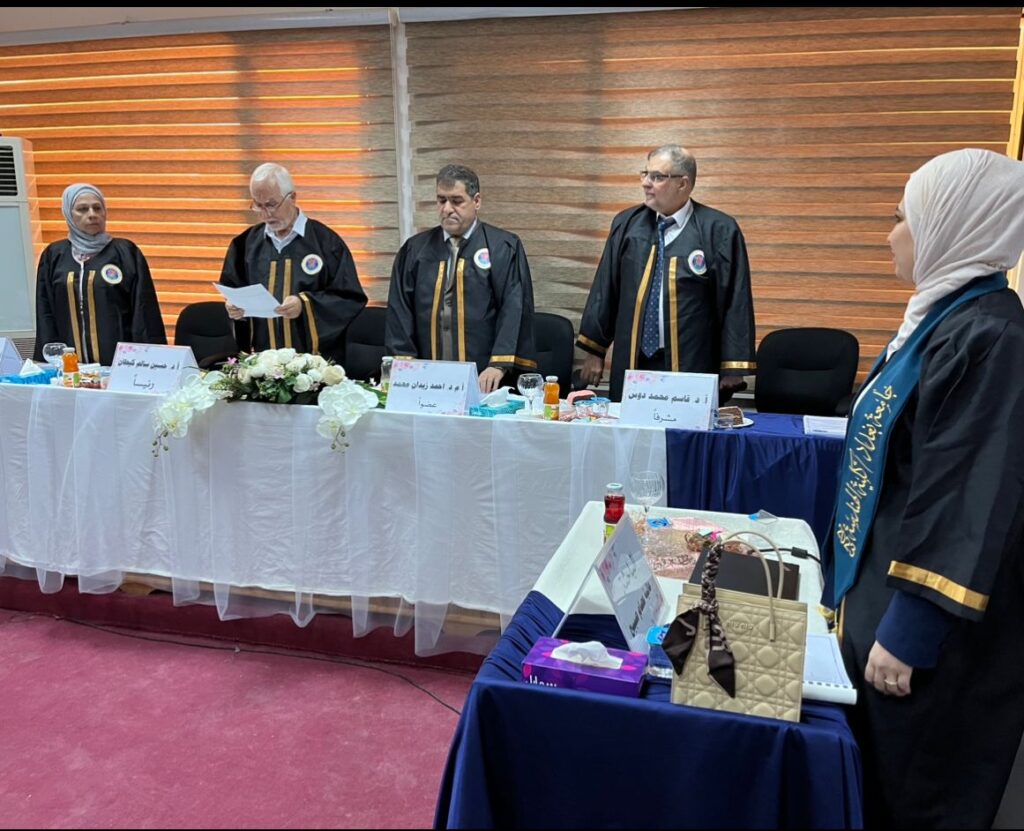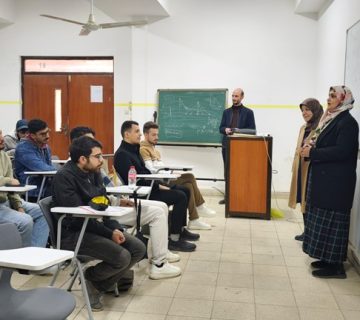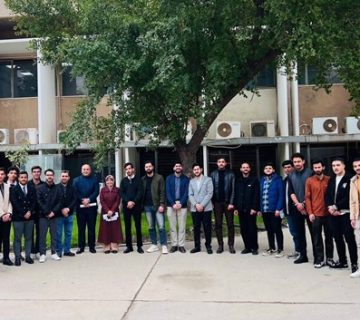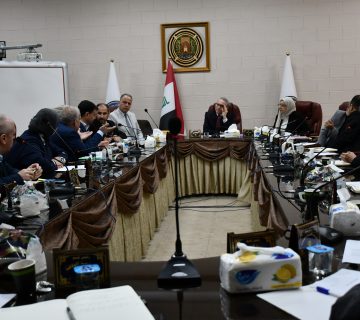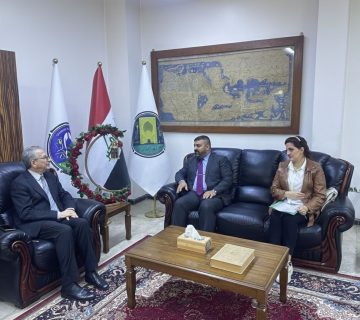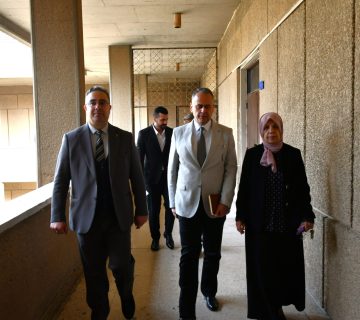It was conducted on Thursday, 25/5/2023, in the meeting hall the discussion of the MSc thesis of the student Alya Issam Sabeeh, which is tagged:
“Computer-Aided Material Selection for Engineering Applications”.
The discussion committee consisted of names listed below:
Prof Dr. Hussein Salem Ketan – University of Warith Alanbiyaa – Chairman.
Assist. Prof. Dr. Ahmed Zidan Mohammed – University of Baghdad / College of Al-Khwarizmi Engineering / Department of Automated Manufacturing Engineering– Member.
Assist. Prof. Dr. Iman Qasim Abdul Hussein – University of Baghdad / College of Engineering / Department of Mechanical Engineering – Member.
prof. Dr. Qasim Muhammad Doos– University of Baghdad/ College of Engineering/ Department of Mechanical Engineering– Supervisor.
The thesis was summarized as follows:
Material selection has a significant role in the design and manufacturing processes. The material selection goal is to lower costs while meeting design requirements and performance objectives. This responsibility becomes challenging with the ever-increasing variety of materials. Engineers can currently find the materials they’re seeking via a computerized search. Users can interact with massive datasets and optimize the search process as access to computer-aided material databases expands. This research presents an integrated methodology for selecting the best material for an engineering design that gives the best performance depending on design requirements. Computerized material selection software is developed based on the proposed method allows engineers and designers to choose the best material based on Ashby’s performance indices and decision theory concepts. The selection software accomplishes two selection models in two phases: screening and ranking. The first model is for screening materials in a database using go/no-go parameters, and then the following procedure is optimization with one performance index. In the second model, materials are screened in a database using go/no-go parameters and then optimized according to multiple performance indices. The ranking procedure integrates the Gray Relational Approach (GRA) with the Entropy-Weighted Method (EWM). The program ranks the screened materials in descending order for suitable materials that meet the design requirements. The (CA-MS) software is programmed in C# language and linked to the Structured Query Language (SQLite) database environment, which is a quick and adaptable database management system. The database model deals with the compatibility between engineering materials, their mechanical properties, and performance indices. The material properties considered in the selection are density, yield strength, tensile strength, Young’s modulus, and fracture toughness. The performance indices consist of stiffness, strength, and fracture toughness indices. Four case studies are performed in the (CA-MS) software to evaluate the efficiency of the proposed methodology, including helicopter rotor blades, protective helmets, drone wings, and thermal insulation. The performance indices proved that composite material has excellent strength, stiffness, and fracture toughness. The result shows that CFRP is the best material for manufacturing helicopter rotors, protective helmets, and drone wings, while wood was the best and cheapest material when the design had to be economical. The method successfully chose the insulating material and found that alumina foams are the best material for insulation without cost consideration. Al-Sic was the best and cheapest material when the design had to be economical. The validity of the integrated methodology is examined using published case studies as the basis for evaluation. The implementation outcome demonstrated an excellent degree of reliability between published cases and the current software outcomes.
After scientific discussions by the discussion committee members on the contents of the thesis in-depth and expressing their observations, directives, and defense by the student, the thesis was accepted and the student was awarded the Master of Science in Mechanical Engineering / Manufacturing and Industrial Engineering with a grade of very good.
On this occasion, we cannot help but extend our thanks to the student, Alya Issam Sabeeh, for his outstanding efforts throughout the study period, wishing him continued success. We also thank the supervisor and the discussion committee members, for their tireless and distinguished effort, in a way that befits the submission of the thesis in the best way and in accordance with the scientific level presented.

